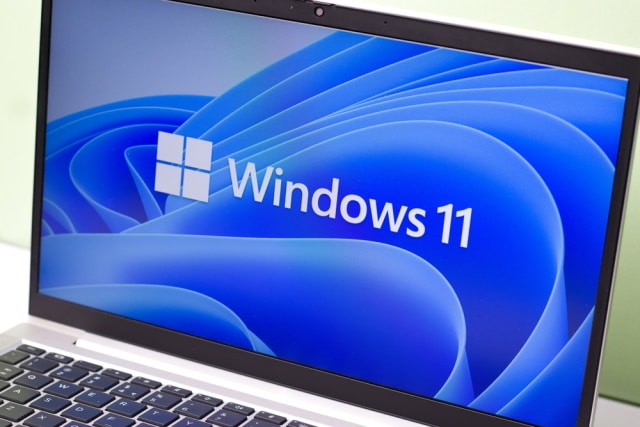
Organizations will struggle to meet cyber incident disclosure deadlines
In the light of President Biden's new legislation requiring critical infrastructure organizations to disclose cyber incidents to the government within 72 hours, new research from BitSight shows how unprepared many are to meet the strict disclosure requirements.
Based on analysis of more than 12,000 publicly disclosed cyber incidents between 2019 and 2022, the research finds it takes the average organization 105 days to discover and disclose an incident from the date it occurred.

Get AOMEI Backupper Professional and other tools free to celebrate World Backup Day
With this year's World Backup Day on March 31st approaching fast, AOMEI is giving BetaNews readers the chance to get their hands on $109.89 worth of software free of charge.
AOMEI Backupper Professional allows Windows PC users to backup and clone their drives. It's a handy tool if you’ve been putting off upgrading to Windows 11 because it allows you to roll back to an earlier OS if the update fails.

Flaws found in over 80 percent of public sector applications
The public sector has the highest proportion of security flaws in its applications along with some of the lowest and slowest fix rates compared to other industry sectors.
A new report from application security testing company Veracode finds 82 percent of public sector applications have security flaws and that 60 percent of flaws in third-party libraries in the public sector remain unfixed after two years.

Using basic data to improve public services
The digitization of public services is at the very top of government agendas across Europe, but the lack of accessible and reliable data, such as core information about individuals and businesses, creates challenges for digital administration.
This information, called basic data or register, is re-used throughout the public sector and is an important basis for public authorities to perform their tasks properly and efficiently. Not least because an ever-greater number of tasks must be performed digitally and across units, departments and sectors. Without accurate and accessible basic data, true joined up services will always remain an illusion.

One in four employees lose job after making cybersecurity mistakes
We all make mistakes from time to time, but a cybersecurity error could cost you your job according to a new report.
The study from email security company Tessian finds almost one in four respondents (21 percent) lost their job as a result of a security mistake that compromised their company’s security -- up from 12 percent in 2020.

Microsoft releases KB5011563 update for Windows 11 to fix Settings and upgrade notifications
Microsoft has released a new optional update for Windows 11 in the form of the KB5011563 preview. The update takes Windows 11 up to build 22000.593, and as well as fixing numerous problems with the operating system, it also introduces an important change to the way notifications work.
The KB5011563 update has previously been released to Windows Insiders, but now the preview version is available for anyone who wants it to install ahead of its full release this coming Patch Tuesday. Among the fixes included in this update are a patch for an issue that causes OneDrive to lose focus, and a speed boost for slow start times.

Silicon Power MEC3H0S is a PCIe 4.0 NVMe SSD for extreme conditions
Most consumers can simply buy any compatible solid state drive, since their computer will be in a home or office -- they will likely have heat and/or air conditioning. In other words, the computer will be operating in normal conditions. Some businesses, however, may be using computers in extreme conditions -- either very hot or very cold. For them, a typical SSD may get damaged due to extraordinary temperatures.
Today, Silicon Power launches a PCIe 4.0 NVMe SSD that is designed for extreme conditions. Called "MEC3H0S," it isn't just rugged and durable, but it is very fast too. It should prove quite brilliant for industrial applications.

B2B software success hinges on developing a B2C testing outlook
As I interact with business software developers specifically -- those that are powering enterprise functions that help businesses grow and succeed -- I’ve noticed a clear pattern in what’s on their mind. These professionals are dealing with a spate of new challenges that are unlike any they’ve had to tackle before.
The pandemic upended and catalyzed the way their clients work; providing a stress test and clear use case for cloud-based, synchronous and asynchronous work tools, less patience among end-users for experiences that didn’t live up to consumer-facing contemporaries, an expectation of flawless performance (anyone remember the last Zoom outage?), and a need to retain users amidst a sea of well funded competitors.

Faster exploitation of vulnerabilities poses a major risk for businesses
The average time to known exploitation of vulnerabilities is 12 days, down from 42 days last year, according to the latest Rapid7 Annual Vulnerability Intelligence report.
Of 50 2021 vulnerabilities looked at in the report, 43 were exploited in the wild and 52 percent of the known exploited vulnerabilities in this report came under attack within one week of public disclosure.

The problem with AI model failure and how to avoid it [Q&A]
It's tempting to look at the hype surrounding AI and see it as a solution to all problems. But AI isn't perfect, there have been some notable failures, often due to poorly defined models.
What are the consequences of getting it wrong, and how can businesses ensure their AI projects stay on track? We spoke to Alessya Visnjic, CEO of AI observability specialist WhyLabs to find out.

'Dr. Google, am I unwell?' What is cyberchondria and how do you tackle it?
When you experience a persistent cold or a petulant pain in your arm, there is no hiding that paying your doctor a visit is not always your first port of call. Sometimes, when struck by a headache or an unexpected rash, the first reaction is to switch on your laptop and fire your pressing questions at Dr. Google. "Why do I have pins and needles in my leg?" "What is causing this mild chest pain?" "Is this mole dangerous?"
Some searchers are simply looking for basic information and take their findings with a pinch of salt. Others, instead, will spend hours skipping from one website to the next, worried about the array of intimidating diagnoses they have found. When this occurs, it is often known as cyberchondria.

Bridging the gap to the C-Suite: Four tips to increase executive buy-in to disaster recovery
When it comes to communicating security concerns and the critical threat that cyberattacks and subsequent data loss pose to business, one of the core challenges that CISOs continue to face is bridging the considerable knowledge gap amongst senior level stakeholders.
Too often, organizations believe they have a comprehensive disaster recovery (DR) plan in place, accounting for and mitigating all potential risks and ensuring sufficient provision for a rapid return to 'business as usual'. But often the risks in terms of interrupted service, loss in revenue, potential supply chain disruption and damage to reputation, are not fully understood.

Scraping is evergreen
Web scraping and crawling have played a major role in creating the internet we see today. While the technology, the process, and the results remain invisible to most, all of it is here to stay. I’d even say that scraping will never go "out of fashion", barring some extreme regulatory changes.
Of course, over its history, web scraping has undergone significant changes, primarily due to the ever increasing complexity of the internet. I think relatively few remember the magnificent simplicity of web pages from the 90s. Scraping was a little easier back then.

Improving signal to noise ratio in Business Intelligence
Business intelligence is a catch-all word. If you were to ask a CEO whether they value business intelligence, they would likely say "yes". Once you start digging deeper into what it is, however, you often find confusion or platitudes that seem to say everything and nothing all at once.
Yet, the concept remains integral to business operations. In fact, most companies nowadays employ some type of business intelligence analysis. The question, however, is not "if", but rather "how well". The answer, unfortunately, is usually "not well".

Microsoft and Google release emergency patches for security vulnerabilities in Edge and Chrome
Google has released an emergency patch for the Windows, macOS and Linux versions of Chrome after the discovery of a zero-day vulnerability that the company says is being actively exploited.
The security fix comes as Microsoft releases a patch of its own for the same vulnerability (CVE-2022-1096) in Edge, its Chromium-based browser. While neither company has given much detail about the problem, Google describes it as being of high severity.
